Frequently Asked Questions
In brief, NCW means waste that is neither wrapped in a designated bag nor affixed with a designated label under "charging by designated bags/ designated labels".
For example, when a designated bag is used to dispose of waste, the waste concerned may be deemed as NCW if the bag is not tightly fastened, or if the waste is allowed to pierce through the bag.
Demonstration on how to properly
"wrap waste in a designated bag"
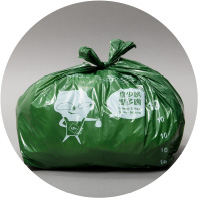
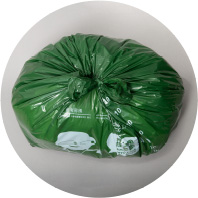
Examples of waste not properly
"wrapped in a designated bag"
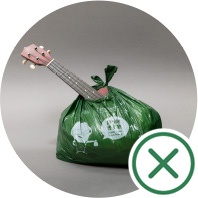
Part of the waste
protrudes from the
opening of the bag
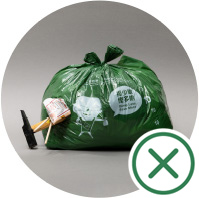
Waste is allowed
to pierce through
the bag
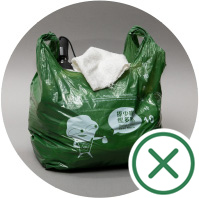
the bag is not
tightly fastened
Besides, any oversized waste (for example large furniture such as dining tables, bookshelves or mattresses) that cannot be properly wrapped in a designated bag will be considered a NCW if it is not affixed with a designated label when being disposed of.
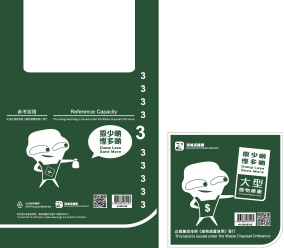
Designated bags and designated labels will only be sold at the authorised retail outlets. Members of the public should purchase designated bags and designated labels at authorised retail outlets or online platforms.
The EPD has published notice in the Gazette to stipulate the specifications for designated bag/ label, including their sizes, shapes, designs and materials for easy reference by the public on their authenticity. Each designated bag and designated label comes with anti-counterfeit features.

For disposal of oversized waste which cannot be properly wrapped into a designated bag, if it is collected by the FEHD (including its contractors); or collected by private waste collectors (PWCs) using refuse collection vehicles (RCVs) with rear compactors, it should be affixed with a designated label. The price of designated label is set at $11 each. Designated labels can be purchased at authorised retail outlets.

If the oversized waste is collected by PWCs using RCVs without rear compactors, it will be charged by weight through "gate-fee" and it is not required to be affixed with a designated label; otherwise it would lead to double payment.
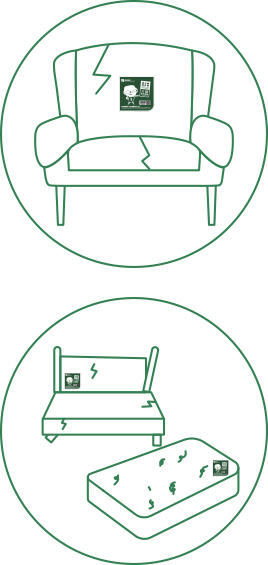
In determining the number of designated labels required, members of public should consider the properties of the oversized waste, including its structure, functions, design, overall size, and quantity, before deciding whether such oversized waste should be considered as one or several articles. The Government will take into account of the above factors and adopt a common-sense approach when deciding whether irregularities are involved.
For example, subject to the actual facts and circumstances, the dismantled parts of the same abandoned furniture firmly tied together by a rope is likely to be regarded as one article of waste requiring one designated label for disposal. However, in case of a table and some chairs, or a bed and a mattress, they are likely to be regarded as separate articles even being tied together, and one designated label is required for each article for disposal.
In addition, multiple bags of household waste tightly bound together cannot be regarded as one article based on their nature. Therefore, such household waste should be properly wrapped in several designated bags but not just affixed with a designated label.
We encourage large scale waste producers (i.e., premises that generate large amount of daily waste, e.g., large facilities, factories, shopping centres, etc.) to apply for being the "Type B Account" holders. The registration procedure for the "gate-fee" accounts will be announced later.
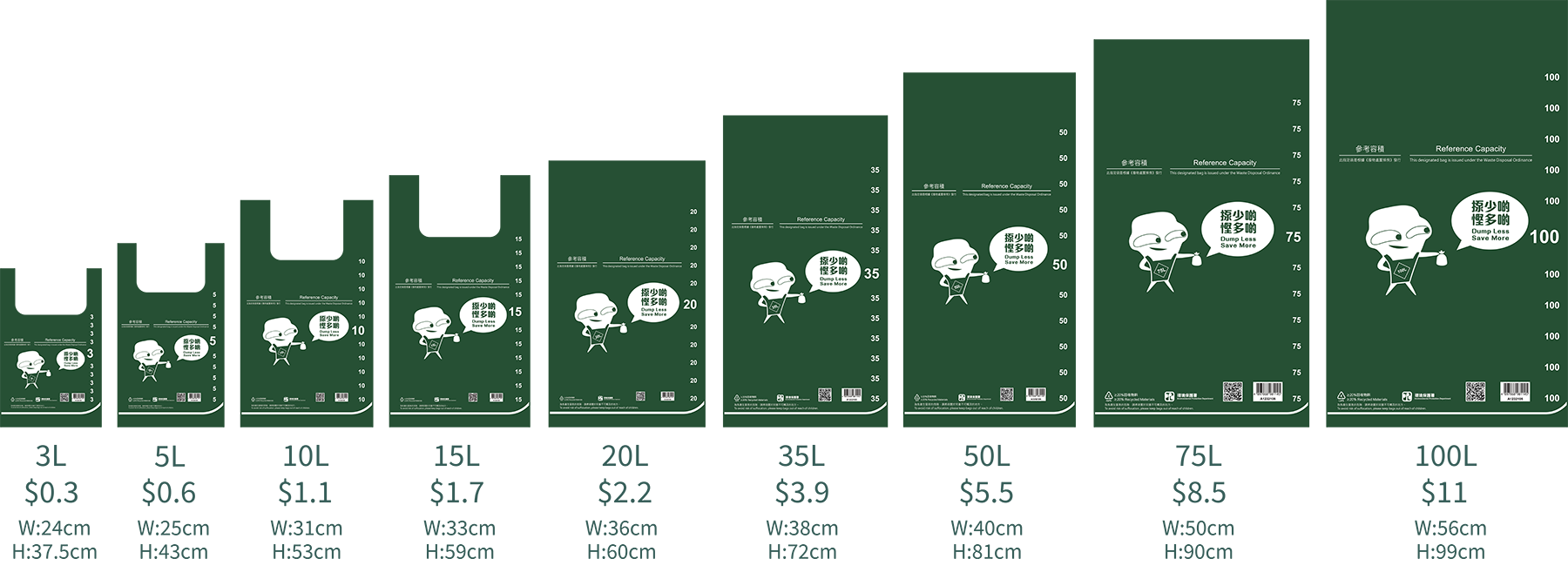
The EPD is actively implementing various food waste collection initiatives, including support on the collection of food waste from commercial and industrial sources and households. Currently, there are approximately 900 collection points across the territory, including food factories, public markets, cooked food centres, wholesale markets, hospitals, government facilities, tertiary institutions, school lunchbox suppliers, hotels, shopping malls, restaurants, and residential estates, etc.
For PRH estates, the EPD will complete the installation of more than 700 Food Waste Smart Recycling Bins (FWSRBs) in 213 PRH estates across the territory by August this year. For private residential buildings, EPD has been supporting the installation of FWSRBs in private residential buildings and rural village through the Recycling Fund and the Environment and Conservation Fund. Besides, private housing estates with a total household number of no less than 1 000 units can also participate the “Pilot Scheme on Food Waste Smart Recycling Bins in Private Housing Estates” to apply for the installation and relevant maintenance services for the FWSRBs, for a period of two years free of charge. In addition to FWSRBs, the EPD also provides traditional covered food waste recycling bins for food waste collection in private residential buildings through the “Pilot Scheme on Food Waste Collection”.
As for residential buildings without sufficient space to install FWSRBs, the EPD set up FWSRBs at three Recycling Stations in the vicinity of residential areas, namely GREEN@SHAM SHUI PO, GREEN@EASTERN, and GREEN@SAI KUNG to conduct trial domestic food waste collection from the neighbourhood at public collection points, and it will be extended to GREEN@SHATIN in April The first public collection point to be set up at the wet market of the Food and Environmental Hygiene Department (FEHD) has also commenced at Lockhart Road Wet Market as a trial in April. Also, the EPD has set up “Recycling Spots” near village houses or single-block residential buildings, and clusters of restaurants in Sha Tin District to collect food waste generated from nearby domestic households and food premises concurrently in the form of kerbside collection booths at fixed time and locations. In March to April 2024, we have also set up 55 night-time Recycling Spots in various districts to provide more convenient recycling outlets for the public.
To facilitate the recycling of food waste produced by street-level restaurants, the EPD is progressively setting up food waste collection points at refuse collection points (RCPs) under the FEHD. It is anticipated that the number of collection points will increase to nearly 100 in the second quarter of 2024. Both eateries and the public can recycle food waste at the collection points. In addition, the EPD has set up mobile booths or used trucks at locations concentrated with restaurants to collect food waste from “food and beverage clusters” in fifteen districts.
The EPD will continue to set up more public food waste collection points at other suitable premises.
For more frequently asked questions about MSW charging, please refer to the Best Practice Guides of relevant sectors
Contact Us
+852 2838 3111

